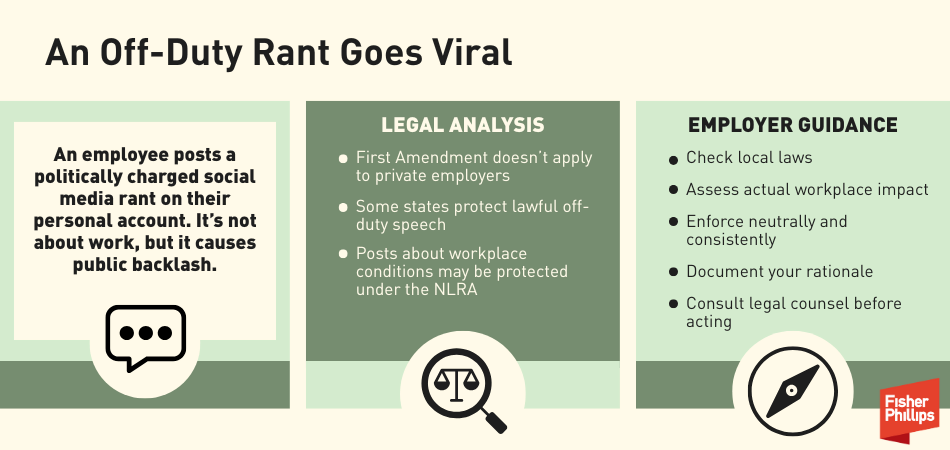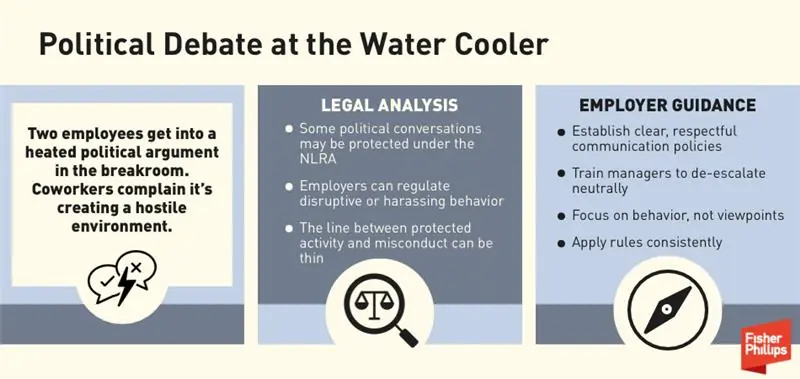Legal considerations for employers
The National Labor Relations Act (NLRA) protects some employee discussions about working conditions, but not all political speech. Employers need to be careful about restricting speech to avoid violating labor laws.
Did you know? Private-sector employers are not bound by the First Amendment’s free speech protections, which only restrict government action.
Social media policies
The article advises employers to have clear guidelines on what’s acceptable, especially regarding posts that could harm the company’s reputation. They should enforce policies consistently to avoid claims of discrimination or unfair treatment.
Protests
If employees participate in protests during work hours, employers might need to handle time off requests or disciplinary actions. It’s important to balance legal rights with maintaining workplace productivity and safety.
Creating a respectful work environment
Training on diversity and inclusion can help manage tensions. Employers should be proactive in addressing conflicts before they escalate.
The conclusion emphasizes reviewing and updating workplace policies to handle these issues effectively while staying compliant with laws. Employers should consult legal experts to navigate complex situations.
The article “Politics, Protests, and Posts: What Employers Need to Know About Workplace Discussions on Current Events” from Fisher Phillips addresses the challenges employers face as employees increasingly engage in discussions about political and social issues at work.
Key takeaways include:
- Legal Boundaries: While the National Labor Relations Act (NLRA) protects employee conversations related to workplace conditions, purely political speech may not be shielded. Employers must carefully craft policies to avoid infringing on legally protected activities.
- Social Media Policies: Clear guidelines are essential for regulating employees’ online posts, particularly those impacting the company’s reputation. Consistent enforcement of these policies helps mitigate risks of discrimination claims or perceived bias.
- Protests and Activism: Employers should establish protocols for handling participation in protests during work hours, including leave policies and disciplinary measures, while respecting employees’ legal rights to engage in collective action.
- Promoting Respectful Environments: Proactive measures, such as diversity training and conflict resolution strategies, can help manage tensions. Employers are advised to address disputes early to maintain productivity and inclusivity.
- Policy Review: Regularly updating workplace policies and consulting legal experts ensures compliance with evolving laws and helps navigate complex scenarios involving free speech, discrimination, and workplace safety.


